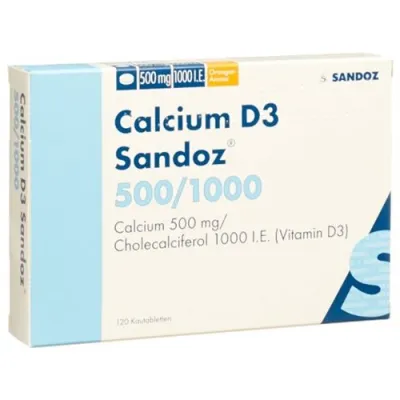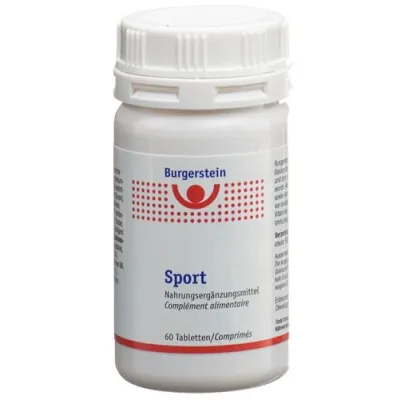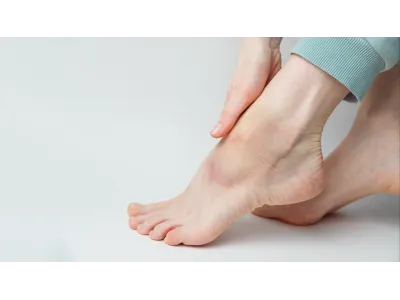Key Nutrients for Preventing Osteoporosis and Joint Problems

Osteoporosis and joint problems are widespread health problems, especially as we age. These conditions lead to weakened bones, reduced mobility, and an increased risk of fractures and chronic pain. Maintaining the strength and integrity of bones and joints is very important for maintaining mobility and quality of life in later years. Key nutrients such as calcium, vitamin D, magnesium and collagen play an important role in maintaining bone density and joint health, helping to prevent or manage these diseases.
What Is Osteoporosis?
Osteoporosis is a condition in which bones become weak and brittle, greatly increasing the risk of fractures. As bone density decreases, bones lose their strength and structure, making even minor falls or strain, such as bending or coughing, potentially dangerous. Osteoporosis often develops silently over many years, with no obvious symptoms, until a fracture occurs usually in the hip, spine, or wrist.
Risk factors
- Age: As we age, bone density naturally decreases, making older people more susceptible to osteoporosis.
- Gender: Women, especially postmenopausal women, are at greater risk because of the rapid decline in estrogen, a hormone that helps protect bone density.
- Genetics: A family history of osteoporosis increases the likelihood of developing the disease, as genetics play a key role in bone health.
- Lifestyle factors: A sedentary lifestyle, a poor diet (low in calcium and vitamin D), smoking and excessive alcohol consumption can contribute to weakening of the bones and the development of osteoporosis.
Best Vitamins For Bones and Joints
Calcium For Bones and Joints
Calcium is the main building block of strong bones, playing an important role in bone formation and maintenance throughout life. It helps keep bones strong and elastic, reducing the risk of fractures as we age. Without adequate calcium intake, bones can become weak and brittle, leading to diseases such as osteoporosis.
- Daily Needs and Sources: The recommended daily intake of calcium varies by age, but adults typically need about 1,000 to 1,200 mg per day. Rich dietary sources of calcium include dairy products such as milk, cheese and yogurt, as well as leafy greens such as kale and spinach. Other good sources include almonds, fortified plant-based milks, and calcium-fortified cereals.
Calcium supplements may also be an option for those trying to meet their daily needs through diet alone. For example, Calcium D3 Sandoz is a combination of calcium (in the form of calcium carbonate) and vitamin D3 (cholecalciferol). The supplement is indicated in the elderly with calcium and vitamin D deficiency or at high risk of deficiency (e.g. insufficient dairy consumption, insufficient sun exposure) and to support the treatment of osteoporosis in patients with proven or high risk of concomitant calcium and vitamin D deficiency.
Calcium d3 sandoz chewable tablets 500/1000 120 pcs
What is Calcium D3 Sandoz 500/1000 and when is it used?Calcium D3 Sandoz 500/1000 is a combination of calcium (in the form of calcium carbonate) and vitamin D3 (cholecalciferol). Calcium D3 Sandoz 500/1000 is indicated as a calcium and vitamin D supplement in elderly people with calcium and vitamin D deficiency or at high risk of a deficiency (e.g. insufficient consumption of dairy products, insufficient exposure to the sun) and for Support for targeted osteoporosis treatment in patients with proven or high risk of simultaneous calcium and vitamin D deficiency.What precautions should be taken?One chewable tablet contains 0.4 g of usable carbohydrates.When should Calcium D3 Sandoz 500/1000 not be taken/used?Calcium D3 Sandoz 500/1000 must not be used withHypersensitivity to one of the active substances or to one of the components according to the composition,abnormally high levels of calcium or phosphate in the blood (hypercalcaemia, hyperphosphataemia),increased excretion of calcium in the urine (hypercalciuria),severe kidney disease, urinary or kidney stones,already existing vitamin D treatment or treatment with preparations similar to vitamin D (e.g. calcitriol), increased vitamin D levels in the blood,Bone marrow (plasmocytoma), bone metastases,Osteoporosis (brittle bones) after long periods of inactivity,prolonged periods of inactivity with high blood calcium levels or high urinary calcium excretion.The chewable tablets must not be used by patients with phenylketonuria because of the component aspartame.When is caution required when taking/using Calcium D3 Sandoz 500/1000?Since Calcium D3 Sandoz 500/1000 already contains vitamin D, any further vitamin D administration should only take place under medical supervision in order to avoid an overdose. In the case of prolonged treatment and/or mild renal insufficiency, it is recommended to have the amount of calcium excreted in the urine (calciuria) and blood calcium levels checked regularly. Depending on the result, your doctor may reduce or even stop treatment.In the case of concomitant treatment with certain cardiovascular drugs, digitalis preparations (digoxin) or thiazide diuretics, administration of calcium in combination with vitamin D requires regular monitoring: it is essential that you consult your doctor or cardiologist. If you are being treated with a bisphosphonate (anti-osteoporosis medicine), sodium fluoride, estramustine (medicine to treat prostate ), orlistat (medicine to treat obesity), cholestyramine (cholesterol-lowering medicine), quinolones (certain antibiotics), thyroxine (thyroid medicine), iron supplements, zinc or strontium-containing preparations or paraffin, a time interval of at least 2 hours should be observed before taking Calcium D3 Sandoz 500/1000. In the case of oral treatment with tetracyclines (certain antibiotics), an interval of at least 3 hours should be observed before taking Calcium D3 Sandoz 500/1000. Tell your doctor if you are taking medication for epilepsy (phenytoin, barbiturates) or cortisone-like preparations.Calcium D3 Sandoz 500/1000 should not be taken at the same time as foods containing oxalic acid, phosphate or phytin, eg spinach, rhubarb, bran-containing or soy products. They can hinder the absorption of calcium.If you suffer from a certain lung disease (sarcoidosis), you may only take Calcium D3 Sandoz 500/1000 after consulting your doctor. Your doctor will monitor the levels of calcium in your blood and urine.If you suffer from immobilisation osteoporosis, there is an increased risk of developing hypercalcemia (excessively high calcium concentrations in the blood).Long-term intake of large amounts of calcium or high doses of vitamin D from food or medicines and at the same time easy-to-absorb basic substances (alkalis, e.g. bicarbonates, which are contained in medicines to bind gastric acid) can lead to a milk-alkali syndrome (calcium metabolism disorder). with the risk of kidney damage. Concomitant use should be avoided at all costs.This medicinal product contains 49.5 mg sorbitol per chewable tablet.This medicinal product contains 0.5 mg aspartame per chewable tablet.Aspartame is a source of phenylalanine. It can be harmful if you have phenylketonuria (PKU), a rare inherited disorder in which phenylalanine builds up because the body can't break it down enough.This medicine contains 1.92mg sucrose. Please only take the medicine after consulting your doctor if you know that you suffer from sugar intolerance. If you suffer from rare, inherited fructose intolerance, glucose-galactose malabsorption or sucrase-isomaltase deficiency, you should not take this medicine. Sucrose can be harmful to teeth.This medicinal product contains 185 mg isomalt. Please only take the medicine after consulting your doctor if you know that you suffer from sugar intolerance. If you suffer from the rare, inherited fructose intolerance, you should not take this medicine.This medicinal product contains less than 1 mmol sodium (23 mg) per chewable tablet, ie essentially «sodium-free». Tell your doctor, pharmacist or pharmacist if you suffer from any other illnesses, have allergies or take other medicines (including those you bought yourself!) or use them externally.Can Calcium D3 Sandoz 500/1000 be taken/used during pregnancy or while breastfeeding?Calcium D3 Sandoz 500/1000 may only be taken during pregnancy and/or breastfeeding if prescribed by a doctor. The dosage must be determined by the doctor.How do you use Calcium D3 Sandoz 500/1000?DosageAdults and the elderly:Unless otherwise prescribed by the doctor, 1 chewable tablet daily (equivalent to 500 mg calcium and 1000 IU vitamin D3). If indicated, your doctor can prescribe a dosage of 2 tablets.The duration of treatment and the dosage depend on the severity and type of disease to be treated, and are therefore determined by the doctor. The chewable tablets can be taken at any time of the day, regardless of meals. The chewable tablets are chewed and swallowed.Calcium D3 Sandoz 500/1000 is not intended for use in children and adolescents under the age of 18. If you have forgotten one or more doses of Calcium D3 Sandoz 500/1000, do not double the following doses. If you take an overdose of Calcium D3 Sandoz 500/1000, the following symptoms may occur: nausea, vomiting, severe thirst, constipation, abdominal pain, muscle weakness and tiredness. If you experience such symptoms, inform your doctor immediately, who will initiate the necessary measures.Follow the dosage given in the package leaflet or prescribed by your doctor.If you think the medicine is too weak or too strong, talk to your doctor, pharmacist or druggist.What side effects can Calcium D3 Sandoz 500/1000 have?Constipation, bloating, nausea, vomiting, and upset stomach or diarrhea. Furthermore, skin rash, hives, itching, hypersensitivity reactions, severe hypersensitivity reactions with swelling of the face, mouth, limbs (up to drop in blood pressure and shock), swelling of the face, lips or tongue, among other things, can occur.If you experience such symptoms, tell your doctor or health care professional.In the case of an overdose in connection with the intake of alkaline substances (e.g. agents for binding gastric acid), a milk-alkaline syndrome can develop (see under “When should caution be exercised?”).If you notice side effects, contact your doctor, pharmacist or druggist. This applies in particular to side effects that are notindicated in this leaflet.What should also be noted?The medicinal product may only be used up to the date marked “EXP” on the package.Store in the original packaging, at room temperature (15−25°C) and out of the reach of children.Your doctor, pharmacist or druggist can provide you with further information. These people have the detailed information for specialists.What does Calcium D3 Sandoz 500/1000 contain?Active Ingredients1 chewable tablet contains 500 mg calcium, equivalent to 1250 mg calcium carbonate, 1000 UI cholecalciferol (vitamin D3).ExcipientsIsomalt (E953), Xylitol (E967), Sorbitol (E420), Anhydrous Citric Acid, Anhydrous Sodium Dihydrogen Citrate, Magnesium Stearate, Carmellose Sodium, Orange Flavor, Silica Hydrate, Aspartame (E951), Acesulfame Potassium, Sodium Ascorbate, Alpha-Tocopherol, Modified Starch, Sucrose, Medium Chain Triglycerides, Anhydrous Silicon Dioxide.Registration Number65824 (Swissmedic)Where can you get Calcium D3 Sandoz 500/1000? What packs are available?In pharmacies and drugstores, without medical prescription.Packs of 20 and 120 chewable tablets. orange flavor.Marketing Authorization HolderSandoz Pharmaceuticals AG, Risch; Domicile: Red Cross..
108.16 USD
Vitamin D
Vitamin D is necessary for the proper absorption of calcium in the intestines, making it vital for maintaining strong bones. Without enough vitamin D, the body cannot absorb calcium effectively, even if your diet is rich in calcium, which can lead to a loss of bone density over time.
- Sources of Vitamin D: Vitamin D can be obtained from exposure to sunlight, as well as from dietary sources such as fatty fish (such as salmon and mackerel), fortified dairy and plant foods, and egg yolks. During the winter months or when sun exposure is limited, vitamin D supplements are often recommended to ensure adequate levels and support calcium absorption for bone health. Burgerstein Sport contains all the necessary vitamins and minerals, such as magnesium, calcium and vitamin D, which contribute to the maintenance of normal muscle function. And also vitamin C, E, B vitamins, selenium and zinc.
Burgerstein sport tablets 60 pcs
Nutritional supplements as a basis for recreational and competitive athletes to cover an increased need for micronutrients Composition Calcium carbonate, L-ascorbic acid, fillers (cellulose, cross-linked sodium carboxymethyl cellulose), magnesium oxide, Magnesium bisglycinate, coating agent (hydroxypropylmethylcellulose, calcium carbonate, polydextrose, talc, glycerin), release agent (edible fatty acids, silicon dioxide, magnesium salts of fatty acids), ferrous fumarate, berry and fruit extract (2.9%, blueberry, blackberry, strawberry, cranberry, grape, pomegranate) , Mixed tocopherols, zinc bisglycinate, D-alpha-tocopheryl acid succinate, calcium D-pantothenate, nicotinamide, manganese bisglycinate, pyridoxal-5'-phosphate, dyes (riboflavin), thiamine mononitrate, copper bisglycinate, riboflavin, beta-carotene, chromium picolinate, pteroylglutamic acid, D- Biotin, Sodium Selenate, Potassium Iodide, Sodium Molybdate, Phytomenadione, Cholecalciferol, Cyanocobalamin. Contains 50mg Berry and Fruit Extract (BerryvinTM) per tablet.. Properties For competitive and amateur athletes Magnesium, calcium and vitamin D contribute to maintaining normal muscle function.Zinc and magnesium contribute to normal protein synthesis.Vitamin C, E, selenium and zinc help to protect the cells from oxidative stress.Vitamin B1, B2, B6, B12, niacin, pantothenic acid, folic acid as well as calcium, magnesium and iron contribute to a normal energy-yielding metabolism. li>Vitamin B6, B12, D and C and zinc contribute to the normal functioning of the immune system. Burgerstein Sport does not contain any substances containing doping according to the WADA list (World Antidoping agency).Designed in Switzerland, made in the USA. Application Take 1 tablet daily with some liquid. Nutritional values Nutritional valueQuantityper%Measurement accuracy Beta carotene; Provitamin A2 mg1 tablet / cpr. corresponds to vitamin A333.3 µg1 tablet / cpr. Pantothenic acid (vitamin B5)15 mg1 tabl. / cpr. Thiamine (vitamin B1)2.4 mg1 tabl. / cpr. Riboflavin (vitamin B2)2.6 mg1 tabl. / cpr. Pyridoxine (vitamin B6)3 mg1 tablet / cpr. Vitamin B1212 µg1 tablet / cpr. Niacin16 mg1 tablet / cpr. Biotin150 µg1 tablet / cpr. Folic acid300 µg1 tablet / cpr. Vitamin C180 mg1 tablet / cpr. Colecalciferol (vitamin D3)20 µg1 tablet / cpr. Vitamin E30 mg1 tablet / cpr. Vitamin K100 µg1 tablet / cpr. Calcium200 mg1 tablet / cpr. Magnesium100 mg1 tablet / cpr. Zinc5 mg1 tablet / cpr. Iron12 mg1 tablet / cpr. Manganese1.5 mg1 tablet / cpr. Copper0.8 mg1 tablet / cpr. Chrome100 µg1 tablet / cpr. Molybdenum50 µg1 tablet / cpr. Iodine100 µg1 tablet / cpr. Selenium55 µg1 tablet / cpr. Notes Store at room temperature. Keep out of reach of small children. The specified recommended daily dose must not be exceeded. Dietary supplements are not a substitute for a varied and balanced diet and a healthy lifestyle.If the urine turns yellow after taking Burgerstein Sport, this is due to the vitamin B2 (riboflavin) in the tablets, which is associated with the urine is excreted. This is a perfectly normal process. The intake does not therefore have to be stopped. ..
52.61 USD
Magnesium
Magnesium is essential for bone health because it activates vitamin D, turning it into an active form that facilitates calcium absorption. In addition to supporting calcium absorption, magnesium contributes to bone structure by influencing bone density, making it a key player in the prevention of osteoporosis.
- Sources of magnesium: Magnesium can be found in nuts and seeds (especially almonds and pumpkin seeds), whole grains, leafy green vegetables such as spinach, and legumes. For those who may not be getting enough magnesium from their diet, supplements are also available to help maintain optimal levels for bone and joint health.
Collagen
Collagen is the most important protein that provides the structure and support to cartilage, tendons and ligaments that are needed to maintain joint flexibility and overall musculoskeletal health. As we age, natural collagen production declines, which can lead to joint stiffness, discomfort, and loss of mobility. Collagen plays an important role in joint cushioning, allowing for smoothness and flexibility of movement, and is often included in joint and muscle vitamins to promote joint health.
- Sources and Supplements: Collagen can be obtained from dietary sources and supplements. One of the richest natural sources of collagen is bone broth, which is made by boiling animal bones for a long period to extract the collagen. It can be easily added to soups, stews or consumed separately. Other sources include animal skin, fish, and foods containing gelatin.
For those looking to boost collagen production, supplements are an effective option. Collagen supplements, typically available in powder, capsule, or liquid form, contain hydrolyzed collagen that is broken down into smaller peptides that are more easily absorbed. These supplements are popular for improving joint flexibility, reducing joint pain, and increasing skin elasticity.
Disclaimer: This article contains information about nutrients for the prevention of osteoporosis and does not constitute medical advice. Always consult your doctor before starting any new vitamins or supplements, especially if you have a medical condition or are taking medication.
R. Käser












